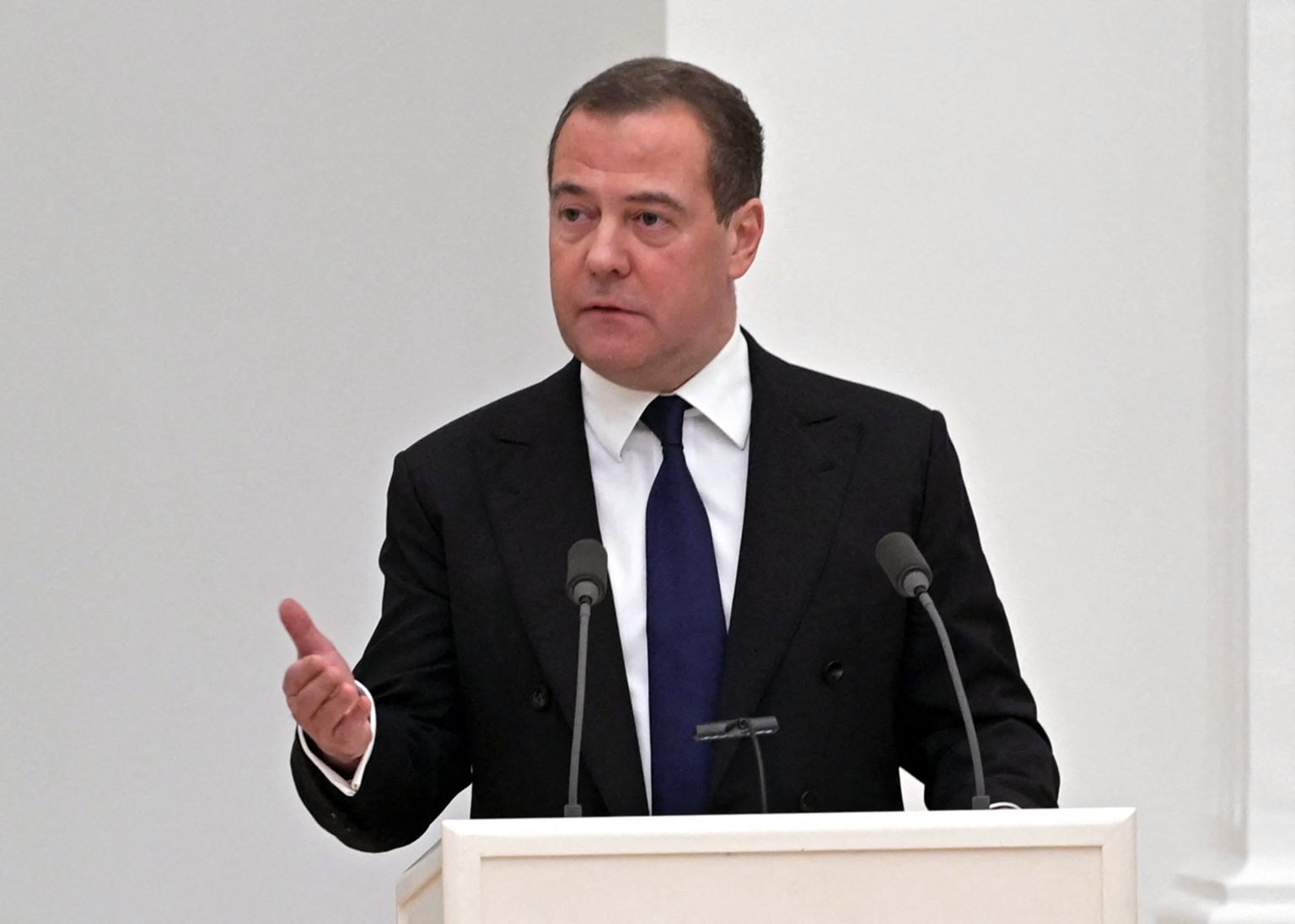Former Russian President Dmitry Medvedev recently expressed strong opposition to the idea of NATO personnel being deployed in Ukraine, suggesting that Russian soldiers should be rewarded for killing troops from the alliance. Medvedev, who is currently the deputy chairman of the Security Council of Russia, made these statements on social media while discussing the potential involvement of NATO military members in Ukraine. NATO has not yet deployed troops in Ukraine, but the alliance’s leadership has discussed the possibility of providing long-term military support to Kyiv, including security assistance, training, and coordination of weapon supplies.
French President Emmanuel Macron caused a stir in February when he mentioned the possibility of Western soldiers being sent to Ukraine, although he later softened his stance. However, Macron has emphasized that the option of deploying Western troops to assist Ukraine should not be ruled out. Medvedev warned that any NATO soldiers in Ukraine would be seen as enemies by the Russian military. He criticized NATO leaders, calling them “totally brazen brutes,” and warned that NATO troops would be treated as elite adversaries, with no prisoners taken. Medvedev also emphasized that there should be a maximum reward for killing NATO fighters without returning their bodies to their families.
Medvedev’s statements were met with criticism and accusations of inciting violence. This is not the first time he has made controversial remarks, especially regarding nuclear war threats. In response to Macron’s comments about potential Western troop deployment, Medvedev warned that Russia had no more red lines left for France. Medvedev’s strong language reflects the heightened tensions between Russia and NATO regarding the situation in Ukraine. The possibility of NATO involvement in Ukraine continues to be a contentious issue, with differing viewpoints on how best to support the country in its defense against the Russian invasion.
NATO has not confirmed any plans to deploy troops in Ukraine, but discussions have revolved around providing military assistance and support to Kyiv. Medvedev’s rhetoric against NATO suggests a deep distrust and animosity towards the alliance, viewing any potential Western troops in Ukraine as a threat to Russian interests. The escalating rhetoric from Russian officials like Medvedev adds another layer of complexity to the already volatile situation in Ukraine. The threat of confrontation between Russian and NATO forces in the region remains a significant concern, with both sides taking a hardline stance on their respective positions.
The situation in Ukraine is further complicated by the involvement of external actors like NATO and Russia, with the potential for further escalation and conflict. The differing approaches to the crisis highlight the deep divides and distrust between Russia and Western powers, with no clear resolution in sight. The fate of Ukraine hangs in the balance as the international community grapples with how best to respond to the ongoing crisis. Medvedev’s inflammatory remarks serve as a stark reminder of the high stakes and risks involved in the conflict in Ukraine, emphasizing the need for diplomatic solutions and de-escalation efforts to prevent further bloodshed and suffering in the region.


